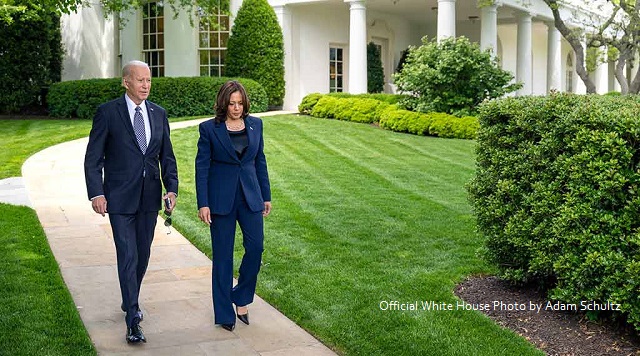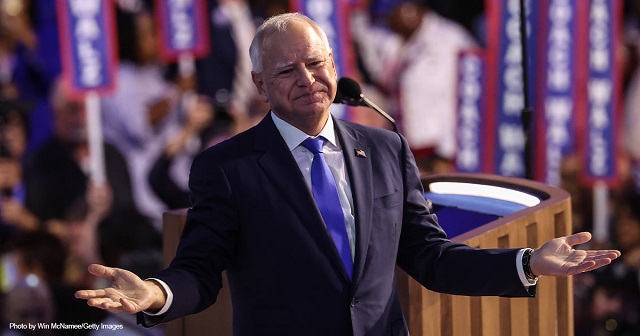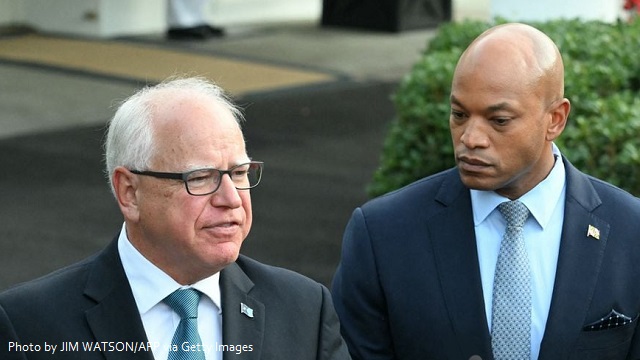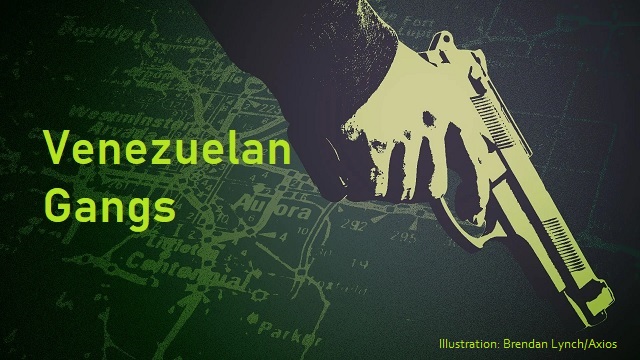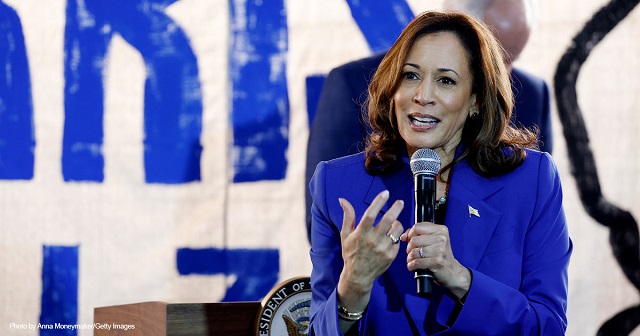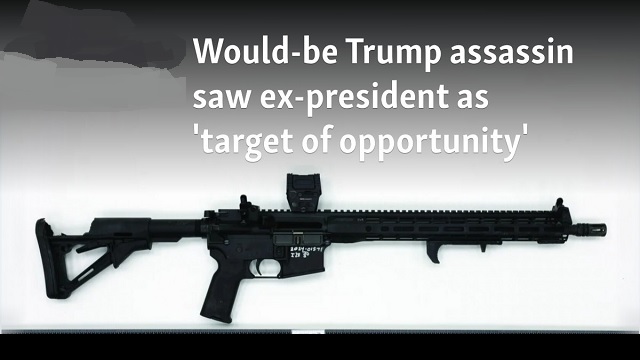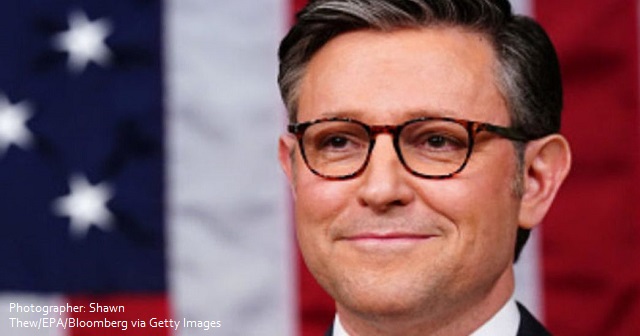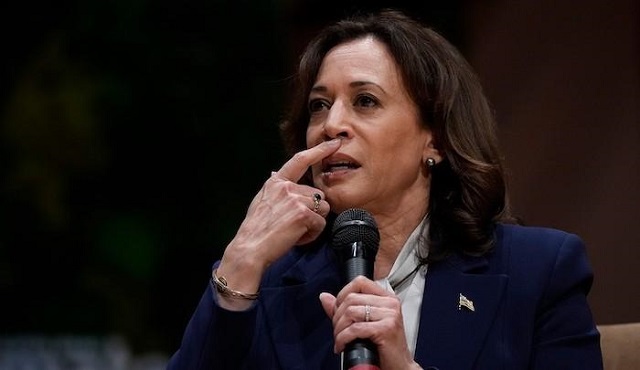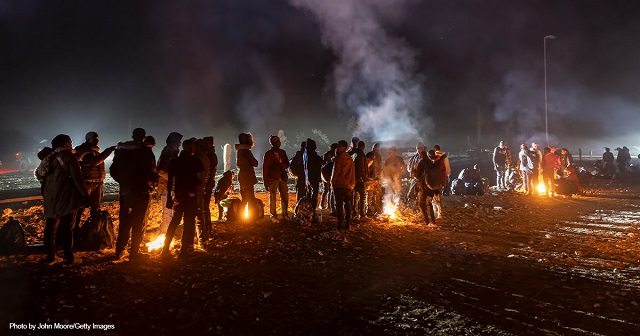‘My Grammar’s Not Always Correct’: Fact-Checking Harris and Walz’s CNN Interview
By Family Research Council
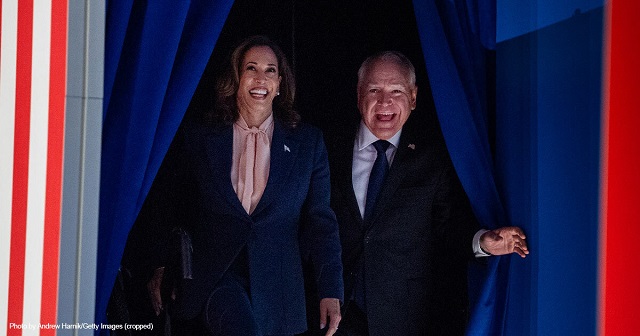
A full 39 days after being anointed the Democratic Party’s presumptive leader, Democratic presidential nominee Kamala Harris sat down for her first in-depth interview. As CNN’s Dana Bash rattled off numerous flip-flops and apparent lies, Harris said her “values have not changed,” that she is “very proud” of her record on inflation and illegal immigration, and that she has no regrets over describing Joe Biden’s mental health as “strong” in late June. Meanwhile, vice presidential candidate Tim Walz blamed his misstatements about serving “in war” on poor grammar and before pivoting to an alleged “national abortion ban.”
Unlike most presidential candidates, who are elected in primaries and vetted by voters, Kamala Harris — who received the nomination through a virtual roll call 27 days ago — has yet to hold an extended in-person interview. To date, she has not held an in-depth interview or press conference on her own, opting to have Walz at her side throughout the process.
Word Salad
The interview got off to a rocky start. When asked what she would do on day one, Harris replied she would “do what we can to support and strengthen the middle class,” to “look at the aspirations, the goals, the ambitions of the American people,” and provide “a new way forward” filled with “hope and optimism.”
“So, what would you do day one?” Bash repeated.
Twice, Harris said she represents “a new way forward” from polarization “dividing our nation,” because “the last decade … I believe has been contrary to where the spirit of our country really lies.” Bash pointed out Harris has served as vice president for 40% of the last decade.
In a question about her apparently evolving views on fracking and climate change (see below), Harris said: “I believe it is very important that we take seriously what we must do to guard against what is a clear crisis in terms of the climate. And to do that, we can do what we have accomplished thus far.”
Harris also received mockery for saying, since “the climate crisis is real, that it is an urgent matter,” the U.S. government “should apply metrics that include holding ourselves to deadlines around time.”
Perhaps the most memorable comments of the interview came, not from Harris, but from Walz, when he tried to explain allegations of stolen valor.
Walz Blames ‘Stolen Valor’ Claim on Poor Grammar
Tim Walz has stated he carried “weapons of war … in war,” allowed others to say he served in active combat zones during the War on Terror without correction, and claimed for two decades to have retired from the National Guard at a higher rank than he earned. Critics accuse him of stolen valor, which is viewed as perhaps the most shameful activity among veterans. The Harris-Walz campaign claimed the Minnesota governor “misspoke” in his remarks.
In his CNN interview, Walz blamed poor English skills.
“You said that you were in war,” pressed Bash. “Did you misspeak, as the campaign has said?”
“Yeah,” replied Walz. “My wife the English teacher told me my grammar’s not always correct.”
Walz taught English during a stint in the People’s Republic of China, leading to a long series of trips to the communist nation.
Walz’s explanation was “hilarious,” said former collegiate athlete Riley Gaines, scoffing at the notion that falsely “claiming you fought in war is just a silly grammar mistake.”
“I certainly own my mistakes when I make them,” claimed Walz, moments after replying he made counter-factual statements, because “I speak like” the American people.
Bash also asked about Walz’s erroneous remarks that he conceived through IVF. Walz replied his comments cut “quite a contrast [against] folks that are trying to take those rights away from us.” Ultimately, Walz refused to offer any remorse for his statements, saying, “I won’t apologize for speaking passionately, whether it’s guns in schools or protection of reproductive rights.”
Walz then pivoted to a hypothetical “abortion ban.” Most Americans, he said, are not splitting “hairs on IVF or IUI. I think what they’re cutting hairs on is an abortion ban and the ability to be able to deny families the chance to have a beautiful child.”
Donald Trump — who has repeatedly announced he opposes any abortion ban at the federal level during his second term — earlier in the day announced during a rally in Potterville, Michigan, that “under the Trump administration, your government will pay for, or your insurance company will be mandated to pay for, all costs associated with IVF treatment, fertilization for women.” During an unscripted interview, he also implied he would vote for Florida’s Amendment 4 to institute an on-demand abortion regime in Florida before his campaign released a statement walking his remarks back.
‘My Values Have Not Changed’ about Fracking, et. al.
Faced with a series reversals and flip-flops from her previous policy proposals, Harris repeated a variation of the phrase “My values have not changed” three times.
“Let’s be clear. My values have not changed” on “the Green New Deal,” which she supported as a 2020 presidential candidate and co-sponsored as a U.S. senator. “I have always believed and I have worked on it, that the climate crisis is real,” she said. She repeated the phrase on her anti-fracking stance.
Harris forcefully rejected the notion that she had changed her mind on fracking, despite recordings showing her saying there is “no question” fracking should be banned.
“No, and I made that clear on the debate stage in 2020, that I would not ban fracking,” answered Harris. “In 2020 I made very clear where I stand. We are in 2024, and I have not changed that position, nor will I going forward. I kept my word, and I will keep my word.”
Harris appears to be referring to her debate with then-Vice President Mike Pence at the University of Utah in Salt Lake City on October 7, 2020. Yet she did not say she opposed a fracking ban during the debate — commenting only that Pennsylvania native Joe Biden did.
“Joe Biden will not end fracking,” said Harris in 2020. Later, she repeated, “Joe Biden will not ban fracking. That is a fact. That is a fact.”
“Nowhere in there does she make clear that she had abandoned her previous support for a fracking ban,” noted CNN fact-checker Daniel Dale about an hour after the interview. “Rather, she repeated that Joe Biden, the head of the Democratic ticket at the time, would himself not ban fracking.”
During the campaign, Harris had endorsed a fracking ban. At a 2019 town hall meeting, a participant asked Harris, “Will you commit to implementing a federal ban on fracking your first day in office, adding the United States [to] the list of countries [that] have banned this devastating practice.”
“There’s no question I’m in favor of banning fracking. Yes,” replied Harris.
“It makes perfect sense that at the time she was speaking on behalf of Biden, the president, not the vice president,” said Dale. “I certainly did not hear anywhere in there Kamala Harris saying she personally had abandoned her 2019 view rather she was speaking for Joe Biden.”
Did Kamala Harris Reduce Illegal Immigration?
Harris defended her record on illegal immigration, as well.
“Why did the Biden-Harris administration wait three and a half years to implement sweeping asylum restrictions?” asked Bash.
“Thee root causes work that I did as vice president, that I was asked to do by the president has actually resulted in a number of benefits,” replied Harris. “The number of immigrants coming from that region has actually reduced since we’ve began that work.”
It’s not clear that is correct. After being appointed Border Czar by Joe Biden, Harris raced to pare down the job, saying she merely examined the “root causes” of “migration” from the three countries in Central America that had historically provided the largest share of illegal immigrants aside from Mexico: the “Northern Triangle” nations of El Salvador, Guatemala, and Honduras.
The number of apprehensions at the southern border fell from 684,000 in fiscal year 2021 to 447,000 in 2023. But experts say those statistics alone do not tell the full story.
The number of illegal immigrants from the Northern Triangle processed for removal under Title 8 exploded from 177,000 in fiscal year 2022 to more than 309,000 in 2023, and the Border Patrol is “on track to make about 418,600 Title 8 apprehensions by September 30,” reported the Center for Immigration Studies. At the same time, illegal entrants from the region who were denied admission at ports of entry steadily rose from about 17,000 in fiscal year 2021, to 21,000 in the following year, to about 48,000 in fiscal year 2023. “In other words, while total apprehensions FY2022-24 (projected) declined by roughly 20 percent, apprehensions under Title 8 grew by 138 percent over the same time period,” states CIS.
In raw numbers, Title 8 expulsions rose by 241,000 in just one year of the Biden-Harris administration, not including other illegal entries. Nor does this include Biden-Harris programs to expedite the legal entry of putative “refugees” from these and other countries.
There are two additional reasons to question the relevance of the statement: While most illegal immigration has come from Mexico and the Northern Triangle, “in December 2023, 54% of encounters involved citizens of countries other than these four nations,” according to the Pew Research Center. And the number of illegal immigrants has broken historic records each consecutive year since Joe Biden and Kamala Harris took office.
No Regrets about Telling Americans Joe Biden Is ‘Extraordinarily Strong’
“Right after the debate, you insisted that President Biden is extraordinarily strong. Given where we are now, do you have any regrets about what you told the American people?” Bash asked.
“No, not at all,” replied Harris, reiterating, “Not at all.”
A mere 63 days earlier, Harris not only described Joe Biden as the picture of health but placed an onus on those who questioned his acuity. Moments after Biden’s disastrous June 27 debate with former President Donald Trump, Harris told ABC News Biden had “a slow start, but a strong finish.”
“Joe Biden is extraordinarily strong, and that cannot be debated,” she quipped.
The legacy media have revealed it was precisely the threat of a cognitive test that helped force Biden out of the presidential race. The New York Times reported that, according to two attendees of a July 11 meeting between Biden and U.S. senators, Senator Jack Reed (D-R.I.) issued an ultimatum (in the Times’ words): “If Mr. Biden wanted to stay in the race after a disastrous debate performance that underscored concerns about his condition and mental acuity, he should submit to examination by two independent neurologists who were willing to report their findings at a news conference.”
Harris ‘Very Proud’ of Bidenomics
“You have been vice president for three and a half years. The steps that you’re talking about now, why haven’t you done them already?” Bash asked Harris.
“I’m very proud of the work that we have done that has brought inflation down to less than 3%,” the vice president responded.
“So, you maintain Bidenomics is a success?” asked Bash.
After rattling off a list of the administration’s putative accomplishments, Harris concluded, “I’ll say that that’s good work. There’s more to do, but that’s good work.”
Inflation for 2023 stood at 4.1%, a marked increase from the 1.2% the Biden-Harris administration inherited. Wages have barely kept pace with inflation, as groceries, gasoline, and other household staples have increased by double digits — the highest inflation level in 40 years.
Despite pressing for clear answers from the pair, many observers faulted Bash for not following up on key assertions made by both Harris and Walz, as well as her question choice. Megyn Kelly noted Bash asked “not a single Q on the Emotional Support Governor’s radical trans policies.”
CNN also appeared to make a few misstatements about the interview. Although the network prerecorded the interview, the network’s feed claimed it was aired “live.” After the interview, anchor Abby Phillip referred to the closed-doors segment as a “town hall” event.
Despite reports that CNN would not offer a transcript of the interview, CNN has issued its official transcript of the historic interview.
Kamala Harris will debate former President Donald Trump on ABC News September 10 at 9 p.m.
AUTHOR
Ben Johnson
Ben Johnson is senior reporter and editor at The Washington Stand.
RELATED ARTICLES:
Voters Are Increasingly Ditching The Democratic Party For The GOP In Crucial Swing State
How Liberal Pollsters Are Recreating The 2016 Wave Of Silent Trump Voters
Tim Walz’s Political Origin Story Is Reportedly Full Of Holes
Video Shows Police Take Down Man Allegedly Attempting To Breach Trump Rally’s Media Area
RELATED VIDEOS:
WATCH: Kamala Harris vows to create a ‘pathway to citizenship’ for illegal aliens
WOW! Kalamity Kamala actually speaks the truth about the failed American economy
Tim Walz thanks Nancy Pelosi 2007 when she said ‘we appreciate his service on the battlefield’
EDITORS NOTE: This Washington Stand column is republished with permission. All rights reserved. ©2024 Family Research Council.
The Washington Stand is Family Research Council’s outlet for news and commentary from a biblical worldview. The Washington Stand is based in Washington, D.C. and is published by FRC, whose mission is to advance faith, family, and freedom in public policy and the culture from a biblical worldview. We invite you to stand with us by partnering with FRC.


